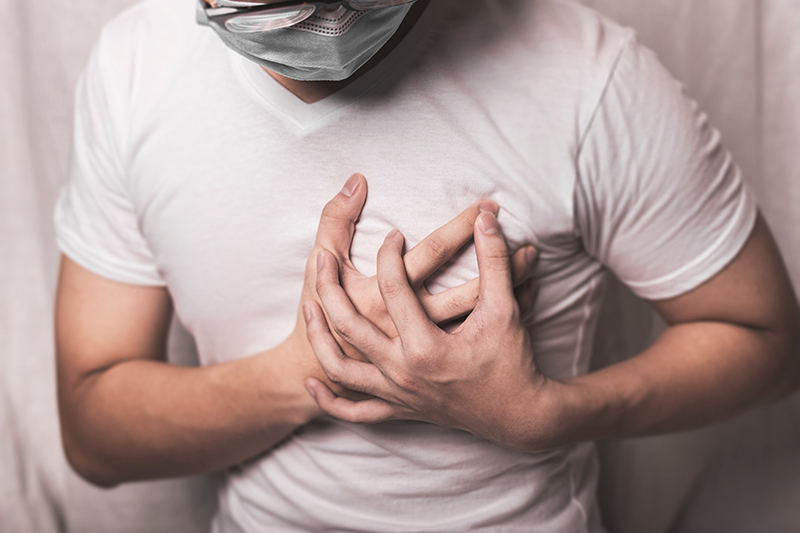Myocarditis caused by long COVID

The ned asCOVID-19 pandemic defi a global health crisis has become the greatest challenge we have recently encountered. COVID-19 can potentially trigger cardiovascular diseases, in both direct and indirect ways. Mounting clinical researches reveal that patients who have certain preexisting medical conditions, especially cardiovascular disease, are at higher risk for severe illnesses and related complications if they become infected with COVID-19. Once the virus enters into the body, our immune system is activated to fight off the infections. Immune responses are produced through different mechanisms including an elevation in body temperature and the release of a variety of pro-inflammatory substances as the first line of defense against viral infection. Nonetheless, theses immune responses can trigger inflammations in the body which includes myocardium –the muscle layer of the heart responsible for the pumping action and pericardium – the fibrous sac that surrounds the heart. As a result, COVID-19 can eventually cause myocarditis (an inflammation of the heart muscle) while reducing heart’s ability to pump, causing rapid or abnormal heart rhythms (arrhythmias). Severe form of myocarditis substantially weakens the heart and forms blood clots in the heart, leading to a stroke or even heart attack. However, the conclusive evidence indicating the exact incidence of myocarditis induced by COVID-19 has not been yet established even though some studies point out that COVID-19 deaths directly caused by cardiovascular diseases are found at 7-10%. More importantly, patients with severe COVID-19 can develop myocarditis or pericarditis up to 40%.
Myocarditis and COVID-19 vaccine
Myocarditis and pericarditis have been recognized as rare complications of COVID-19 vaccines. Among other types, the mRNA COVID-19 vaccines appear to be more likely to cause these undesired effects. Nonetheless, myocarditis and pericarditis induced by COVID-19 vaccines only range from mild to moderate degrees according to current post-vaccination reports. After the second vaccination of mRNA COVID-19 vaccines, myocarditis and pericarditis might present within 3 days or up to 2 weeks. In the majority of cases, patients are present with mild signs and symptoms investigated by physical examination, blood tests and electrocardiography (EKG). Most of myocarditis and pericarditis are self-limiting with a complete cure. Moreover, these post-vaccination conditions are rarely found at an incidence of about 1 case per 100,000 – 200,000 cases.

Cardiovascular diseases and long COVID
Long COVID or post-COVID syndrome is a term used to describe the effects of COVID-19 that persist for weeks or months beyond the initial illness. Besides other vital organs, long COVID can lead to long-term effects on the cardiovascular system, inducing myocarditis and pericarditis. Most often, the heart damage caused by long COVID is due to the formation of very small clots that block tiny blood vessels in the heart muscle. Despite the incident rates of myocarditis and pericarditis caused by long COVID remain inconclusive based upon currently obtained medical evidence, myocarditis and pericarditis are more common during acute COVID-19 infections.
Clinical manifestations during long COVID
Patients who develop cardiovascular conditions during long COVID often experience a broad range of signs and symptoms, including palpitation defined as a fast-beating, fluttering or pounding heart, weakness and fatigue sometimes accompanied with chest pain or discomfort. Some patients can develop arrhythmia. If any of these abnormalities exhibits, additional investigations usually involve blood tests and imaging procedures, such as MRI scan, allowing for an accurate diagnosis. Treatments conducted by the expert cardiologists can be provided accordingly, depending on disease severity, symptoms and overall health conditions of each individual.
As COVID-19 can sometimes persist for months, besides the lungs, the virus can damage several organs in the body, including cardiovascular system. It is crucial to ensure that a full recovery can be obtained after being infected with COVID-19. If any cardiac abnormality arises, it is highly recommended to seek immediate medical attention, allowing effective treatments given in a timely manner.

